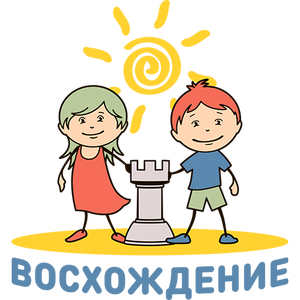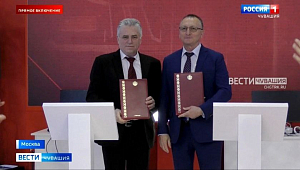6 September 2016
Ex Fischer’s Testamento
Round Two of the Baku Olympiad in the review of Vladimir Barsky.
On my way around the playhall to hunt pictures on the day of round two, I noticed some unusual excitement and commotion in the heart of a huge playhall well away from the scene accommodating the leaders. The clue to this riddle was rather simple: The World Champion Magnus Carlsen has joined the fight and this event could go unnoticed by no means. Initially Magnus was still attempting to elude attention and to pass himself off as a regular player like everyone else: he sat at his work place, talking quietly about something with his neighbor and friend Jon Hammer. However, once the champion got up from the table, a queue of those willing to get a joint picture formed up without delay.
Picture with the champion
Magnus was obviously in a good mood and never turned anyone down. On that day he was to play as White against Enamul Hossain (Bangladesh), whose rating is more than 400 points lower than his own. Carlsen opened the game with a “semi-move” 1.e2-e3, and ended it with a direct attack against the king: while his own monarch was on g1, he was not afraid to send all his loyal infantrymen “f”, “g” and “h” into the assault. It was all over by move 33. Although the Scandinavians went on to win match as well, it was with a narrow margin: Hammer drew his game, while team boards 3 and 4 traded blows.
Refereeing this crucial match was trusted to Anatoly Avraamovich Bykhovsky - an international arbiter, an honored coach of the USSR, and a respected and wise man. Belaya Ladya, tournaments of Pioneer’s Palaces (when grandmasters/team captains used to give simuls to children) are all brainchildren of his. He used to be coaching the junior USSR teams for the duration of 25 years, whereas he raised his most famous disciple as late as in the 1990s, him being Alexander Grischuk.
Anatoly Avraamovich Bykhovsky
That day the Russian men’s team was to face the team of Turkmenistan, which features three Atabayev brothers and Handszar Odeev, him being the one who Alexander-was playing against with the black pieces. Grischuk’s teammates used to tease him saying that it was for the first time in their lives that they witnessed such an incredible picture when rather than Grischuk going through time trouble, it was his opponent instead! Odeev sacrificed a pawn in the opening only to discover soon that the Russian grandmaster’s insight into this famous theoretical line is a lot deeper than his own. While White’s initiative came to naught, Black retained an extra pawn and marched it to the queening square.
A nice victory was scored by Ian Nepomniachtchi.
Nepomniachtchi – Atabayev

Black’s position is unpleasant, being poorly consolidated. For instance, the natural 19...Ned7 20.Qd2 Rc8 runs into a breakthrough 21.e5!, and now 21...dxe5 22.Bxf6 Nxf6 23.Rxf6! gxf6 24.Ne4 Qxc2 25.Qh6 wins for White, or 21…Qxe5 22.Rae1 Qa5 (simply very bad is 22…Qc5 21.Bxf6 Nxf6 22.Rxf6! gxf6 23.Rg1 with decisive threats) 23.Nd5! – White wins the exchange while maintaining all pluses of his position. More tenacious is 20... Ree8 (instead of 20...Rc8), but here White can easily start escalating pressure in the center and on the kingside.
Saparmyrat hoped to bail out tactically with 19…Neg4. The g5-bishop is hanging, whereas the e3 knight fork is in the air. However, a short move 20.Qd2! freed Black of all illusions since material losses are inevitable for him.
20…Nh5 21.hxg4 Ng3+ 22.Kh2 Nxf1+ 23.Rxf1 Rd7 24.Be3 Qe5+ 25.Bf4 Qc5 26.Be3
26.Nd5 was objectively stronger, but Ian obviously wanted to keep this knight for more urgent affairs.
26...Qe5+ 27.Kg1 Bxg4 28.Bd4 Qh5 29.Nd5
The knight mounted onto the central outpost and there is no challenge him from there.
29…Rf8

30.Rf6!?
This move bears the name of Bobby Fischer! Trivial ideas like 30.Qc3 f6 31.Qg3 must have seemed not enough attractive to Ian.
30...Kh7
After 30...Re8 it is not very clear what the rook is doing on f6, but now Saparmyrat becomes a co-author of a beautiful finale.
31.Qf2! Bh3 32 Bxh3 Qxh3 33.Rf4! g5 34.Nf6+ Kg6 35.Rg4. Black resigns.
Vladimir Kramnik outplayed his opponent in his trademark style - Yusup Atabayev was the one who used to put up an incredibly tough resistance to Grischuk at the latest World Cup held also here in Baku.
Atabayev – Kramnik

19.h5?
This advance is a positional error, as was explained by Vladimir Kramnik over the dinner. It is not so much about White’s breaking through with g4-g5 since Black is well geared up to counter this undermine, but it was rather necessary to maintain pressure on the kingside, keeping this threat up his sleeve. Now Black carries out subtle regrouping of his forces and launches an offensive at the opposite side of the board.
19…Qf7 20.Rg3 b5! 21.Ng1 Bb6 22.Ne2 c5 23.Rf1 Bb7
This is an excellent regrouping! Both black bishops are now fully engaged in business, whereas the white knights are unable to find their walk in life.
24.Nc1 Rd7 25.Nh4 Red8 26.Be3 c4! 27.Bxb6
After 27.dxc4 bxc4 the с4-pawn is not a liability but an asset as it curtails the c1-knight and could be used as a battery ram at any moment necessary. On the other hand, White starts experiencing problems with his e4-pawn.
27...axb6 28.Ng6
Even though this is a beautiful station for the knight, it is absolutely out of play there. It should be mentioned, however, that it upholds f2-f4, but this advance might have never happened in the first place.
28…Nc5 29.Qe2 cxd3 30.cxd3

30…Rd4
The position is ripe for a “coup de grace.” 30...Rxd3!, and if 31.Nxd3, then 31…Bxe4 32.Rd1 Rxd3 33.Rdxd3 Qc4, winning. However, Kramnik is not in any hurry.
31.f4 exf4 32.Nxf4
The knight is back in the game, making White’s life somewhat easier.
32…b4 33.Re3 Qd7 34.Qf3 Qa4 35.Nfe2
Although more stubborn is 35.Qe2 Ba6 36.Rff3, such positions can in general be kept together only by computers since a human being will certainly commit an error somewhere along the road. Atabayev virtually forces Kramnik to take the pawn.
35...Rxd3! 36.Nxd3 Rxd3 37.Ng3 Ba6 38.b3 Qa3 39.Rd1

39…Na4!
This is the last touch of elegance. White resigns.
The most stubborn battle was underway on table one, but there Sergey Karjakin finally broke the resistance of Maksat Atabayev. This duel will be touched upon by grandmaster Dmitry Kryakvin in his review. Russia has scored her whitewash victory for the second time in a row.

Two captains - Sergey Rublevsky and Andrey Filatov (picture by M. Emeljanova)
Our women’s team has also defeated Ecuador with a 4-0 score - all in all our girls took slightly over three hours to deliver the finished job. On board one Valentina Gunina defeated Martha Fierro - although an experienced grandmaster, but the one who has virtually abandoned tournament practice as of recently. Other boards saw no big confrontations either.
Goryachkina – Heredia Serrano

Black quite unduly neglects the intermediate move idea: 12…Bxd3? 13.exf6! Bxf1 14.fxg7 Kxg7 15.Kxf1 e6 16.Qd2 f6 17.Rd1 g5 18.Bg3 Qa5 19.e4 d4 20.Qxd4 Rfd8 21.Bd6 e5 22.Qc4 Rd7 23. Bf8+ Black resigns.
Even thought Alexandra Kosteniuk was on rest that day, she came to cheer for her friends, of course. She paid a visit to the exhibition stand of the Russian Chess Federation, where she was pictured in the company of the national women's team coach Alexander Riazantsev.
The first sensation of the Olympiad happened when the world champions from Georgia went down to the national team of Philippines, although all the Georgian boards were rated 200-300 points higher than their competitors. The team leader Nana Dzagnidze quickly achieved an overwhelming advantage, but failed to convert it. Frankly speaking, two unnecessary defeats were suffered by Bela Khotenashvili and Salome Melia, whereas it was only Nino Batsiashvili to win her game .
The World Champion Hou Yifan has not yet joined the battle arena, but has already shared her first impressions of the Olympiad:
– Baku is a beautiful city, and the Olympiad event makes it even more attractive because it is known to be not only a major sporting event, but also a great “get-together”. Thus, the exhibition hall displays a lot of items that show different aspects of chess. While participating at the Olympiad we, of course, want to win and show the best results. This is especially important for our team, which failed to win the gold on several previous Olympiads. I hope that this time we will be able to perform better.
Here is what Hikaru Nakamura, one of the leaders of the USA men’s national team, has to say about it:
- Of all Olympiads that I visited Baku offered the best opening ceremony. This is a good start, of course. The playing conditions are very good, the playhall being huge and spacious. I like it.
Winning gold is a very challenging task. The difference between the gold and the bronze medals, for example, can express itself in one or two games, in a couple of critical moments that might happen in matchups against Russia or China. We definitely have good chances, but it will all depend on some specific moments.
Kirsan Ilyumzhinov and Arzu Aliyeva with her son
Round two was visited by the President of Azerbaijan Ilham Aliyev’s daughter Arzu Aliyeva and her son. Kirsan Ilyumzhinov took them on a tour around the huge “Crystal Hall”. The details will be given slightly below in our picture gallery.






















